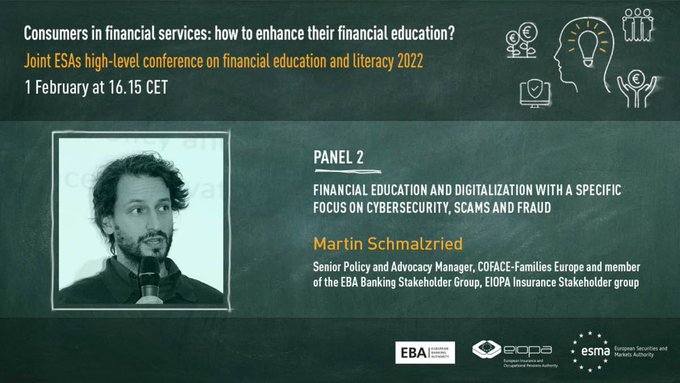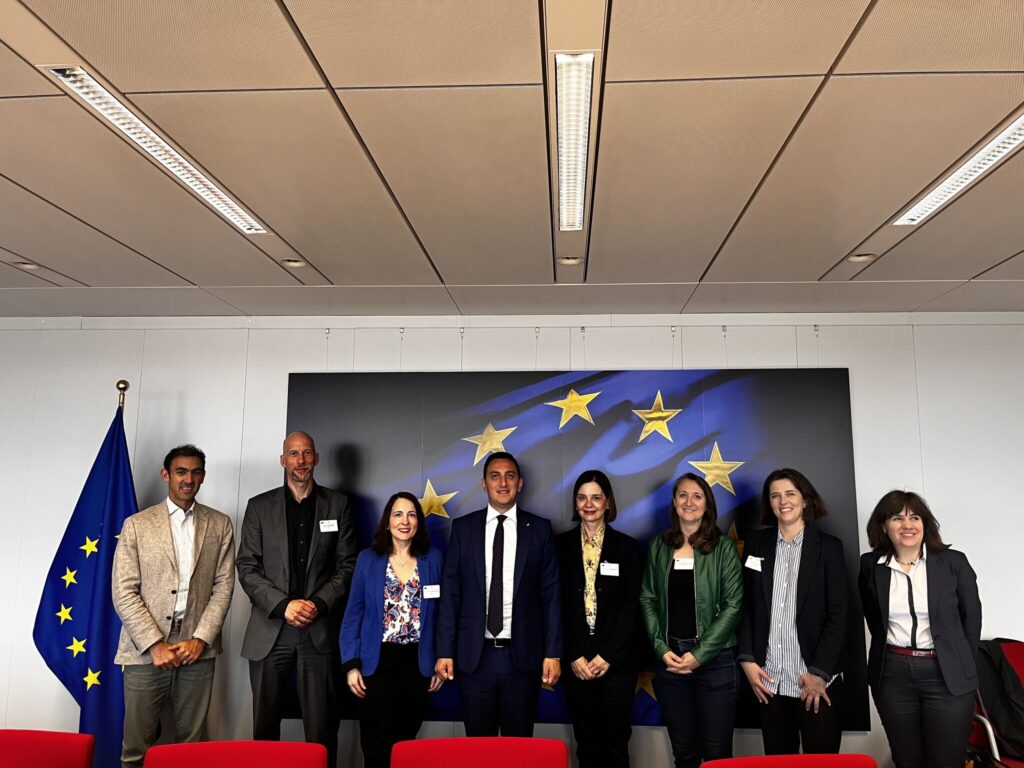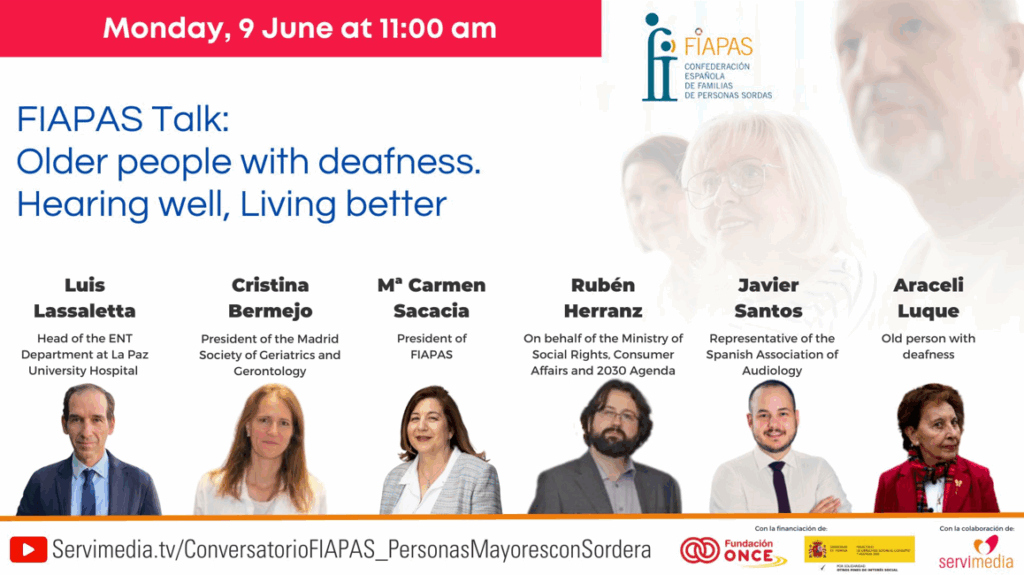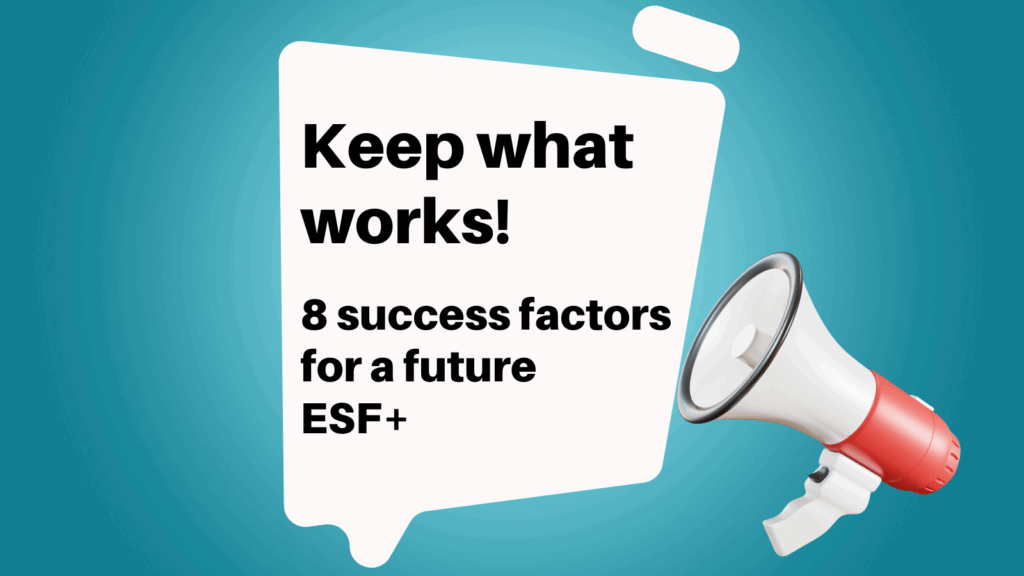The European Supervisory Authorities (ESAs) – EBA, EIOPA and ESMA, held their first joint high-level conference on financial education and literacy on 1 and 2 February 2022. The conference gathered high-level government representatives as well as experts from public authorities, academia, NGOs, consumer associations, and the industry to raise awareness of this important topic. It also offered a forum to share ideas and best practices and exchange on how to tackle future challenges. COFACE’s Senior Policy and Advocacy Manager, Martin Schmalzried, took part in the conference to share input on the topic of digitalization in regards to financial literacy with a specific focus on cybersecurity, scams, and fraud.
Petra Hielkema, Chairperson of EIOPA and currently Chair of the ESAs’ Joint Committee, opened the conference by highlighting the crucial role played by financial education and literacy in protecting consumers and ensuring a long-term stability of the financial sector. “Financial literacy is more than just being able to read a statement. It is about having a broader understanding of finances, including where there are risks”, she said.
Talking about the role of the three ESAs and the aim of the conference, she added: “This conference demonstrates the importance of financial literacy in creating economically independent citizens who can actively participate in financial decision making, in particular in the face of increasing digitalisation. All three European Supervisory Authorities will continue to build on their financial education work to foster a more financially resilient and inclusive society”.
The conference was opened by H.M. Queen Máxima of the Netherlands, in her capacity as the United Nations Secretary-General’s Special Advocate for Inclusive Finance for Development (UNSGSA), and Mairead McGuinness, EU Commissioner for Financial services, Financial Stability and Capital Markets Union. In their respective addresses, both H.M. Queen Máxima and Commissioner McGuinness highlighted the need to make financial literacy a priority and to create an ecosystem that supports the financial resilience and financial health of today’s youth, especially by building up financial awareness. They considered this to be particularly crucial in the wake of the Covid-19 pandemic, which has exposed the financial vulnerabilities of individuals and households across developed and developing countries, and widened the gap between the financially resilient and the financially fragile.
The event, which was lived streamed and recorded, saw the participation of over 300 people.
All the proceedings of the conference are available on the ESAs’ respective conference pages.





